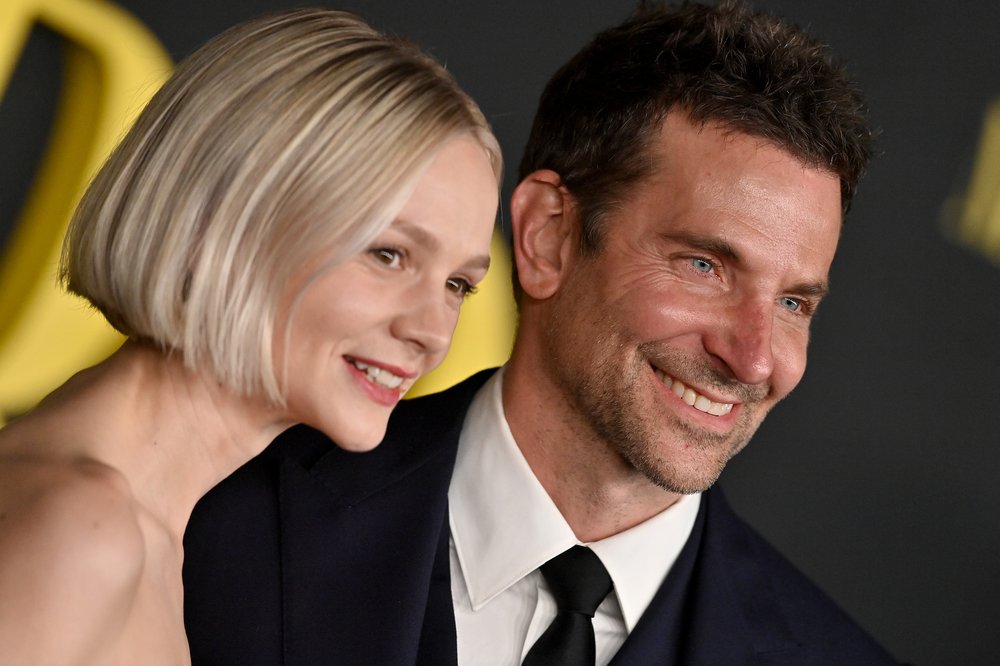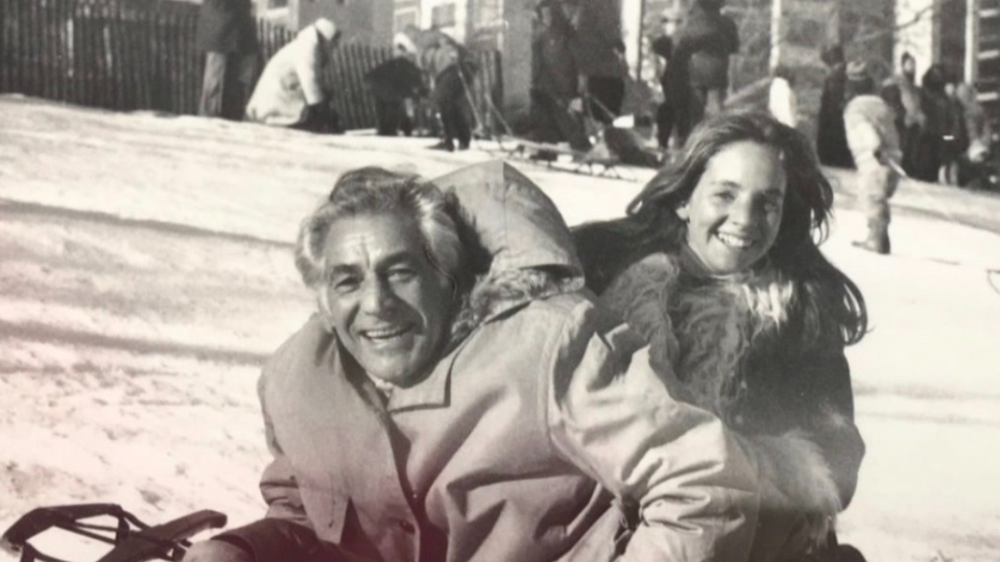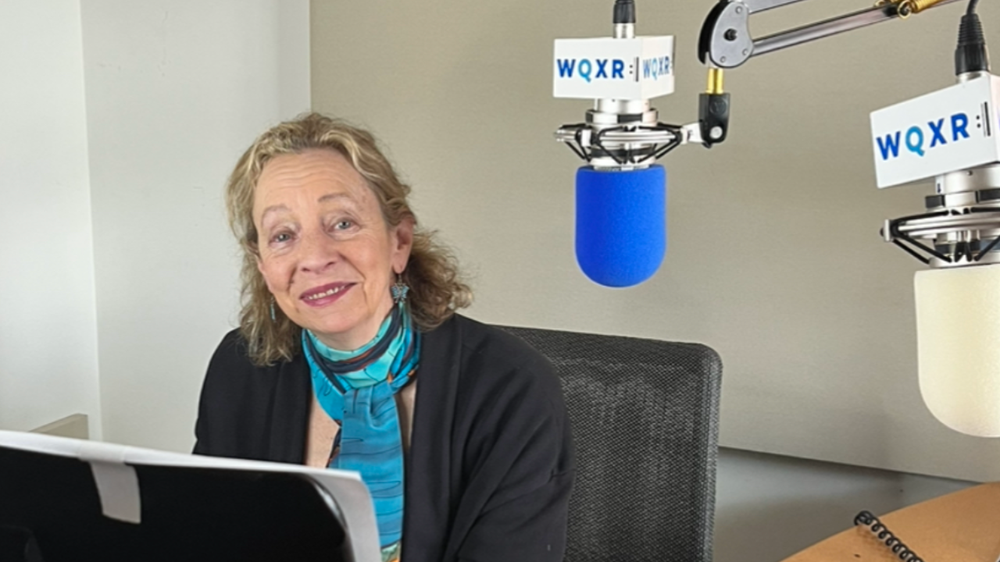Jamie Bernstein on her parents’ love story in Bradley Cooper’s 'Maestro'
Dec. 18, 2023, 6:01 a.m.
The film, which was co-written, directed by and stars Bradley Cooper as the legendary composer, begins streaming on Netflix on Wednesday.

The film "Maestro," starring Bradley Cooper as legendary composer and conductor Leonard Bernstein, begins streaming on Netflix on Wednesday.
It goes beyond chronicling Bernstein’s career to explore the tensions within his marriage to actor Felicia Montealegre — played by Carey Mulligan — which were exacerbated by his affairs with men.
Though the couple lived a public, glamorous life, raising three children in New York City, behind closed doors they had frank conversations about Bernstein's sexuality and Montealegre's frustrations with her career taking a backseat to her husband's.

Bernstein’s three children have been supportive of the film and allowed the family's Connecticut home to be used for filming.
One of those children, author Jamie Bernstein, spoke to Alison Stewart on a recent episode of “All of It” to discuss what it was like growing up in a famous family, dad jokes, and seeing her childhood played out on the big screen.
You can listen to their whole conversation here; an edited version is below.
Alison Stewart: Before the film, had you been approached about a biopic about your family?
Bernstein: This whole project began a long time ago, 15 years ago.
The producer, Fred Berner, and his partner, Amy Durning, came to the Lenny Bernstein office and pitched this biopic idea to us, and we said, "Okay, give it a try. See if you can put it all together."

The years went by and various iterations went by. It wasn't until about six years ago that Bradley Cooper came on board.
When he started taking his deep dive into Leonard Bernstein and everything about him, he decided to change the flavor of the project and make it this portrait of a marriage rather than a conventional biopic. He really changed the whole idea of the film.
Before you could say yes with your whole heart, what did you need to know from the filmmakers?
Well, basically, we were persuaded by Bradley Cooper that he was the man for the job. He had just finished making “A Star Is Born,” and he screened it for us. It hadn't been released yet.
When we saw it, we thought, "Well, here's a guy who knows what he's doing."
He was passionate about music and about our dad, although he didn't yet know as much about our dad as he eventually did, but we just felt like he was the right guy for the job, and then it turned out that he really was in ways that we couldn't even have anticipated.
He strikes me as a careful person.
He's careful, but he also is a big risk-taker because the film is very full of risk-taking, to say nothing of Bradley getting up there and literally, actually conducting the London Symphony Orchestra in the finale of Mahler's second symphony. That's risky.
What questions did you have about how they were going to handle some of the sensitive aspects of your family's life?
We all had a conversation about it. It was fortunate in a way: In our dad's centennial year, 2018, I wrote a memoir about growing up in my family called "Famous Father Girl."
Writing that memoir gave my brother and sister and me a chance to talk about and process many of the challenging elements and issues in our family history and stuff about our dad and our parents as a couple.
We went through all of that back then, and that turned out to be very good preparation for dealing with all these issues when it came to the filming of “Maestro.”
Some of the movie was filmed in your actual home in Connecticut. What was it like emotionally to see your family's home and to see your fictional family in your home?
The whole emotional ride of watching this film be created and turned into an entity that's now in the world, it's just been … we keep going back to the same adjective, surreal.
It's surreal to see your own family portrayed on screen and ourselves, too. We're in the film as kids, and Bradley Cooper and Carey Mulligan are younger than the three of us are, but they're playing our parents when we were younger. The whole thing is so discombobulating but also kind of thrilling.
Maya Hawke plays you in the film. Did you have a chance to spend time with Maya?
I have not met her yet.
She's delightful, by the way.
So I hear.
You both have these great low voices.
Yes. I know we both have these raspy voices. We have that in common. Many people have said to me, "In real life, she's like you," so I can't wait to meet her, of course.
I think I thought when I was watching it that she brought an extra dimension to it because she is a child of two very famous people.
She's a famous-father-girl, too.
She is. And famous-mother-girl, and has had parts of their lives played out very publicly. I thought that was really smart casting.
Yes. I think that was a good choice.
The film begins with that moment that your dad got the call that would change his life, that the original conductor's come down with the flu. We heard you narrate it in the podcast. What was the family legend version of that like when you talked about it at home?
You have to remember that all of that happened way before we came along.
Of course.
That debut was in 1943, and our dad and mother weren't even married yet. They met perhaps that year, but they didn't get married until '51. We didn't come along till after that. It was always history to us. It was ancient history, and so the ...
I'm laughing. Were you kids like, "Oh, dad, I don't need to hear that story again?" Kids are kids.
Yes. We heard it so often anyway in the world.
Sure.
Anytime there's an article written about our dad, or a book, it's all going to be in there. We mostly heard those details over and over from elsewhere, not so much from our dad directly.
There's so much known about your dad. What are the adjectives you would use to describe him as Dad?
If you've only seen Leonard Bernstein — let's say on a video or in real life — standing on a podium in his white tie and tails, conducting and looking very imposing and serious, you would never know that he was hilarious.
He was warm and huggy and hilarious, and his idea of a good time was to remember all the jokes he’d ever heard in his life and all the vaudeville routines that he inhaled and just absorbed like a sponge. He never forgot anything, he had an incredible memory. He could reproduce entire vaudeville routines that he'd seen as a child and share them with us kids. We loved hearing all the funny stuff, and the family was full of private jokes and private language.
There was a lot of laughter in our house, and that's the first place I go to in my memories of my dad.
I love that your dad had dad jokes.
He did. He had everybody jokes. Some of them were quite inappropriate.
What adjectives would you use to describe your mom?
The thing about our mother was that she's really hard to describe. She was from South America and spoke excellent English because she went to English language schools but she had this hybrid quality in her relationship to the English language.
She, too, was hilarious. She had this razor wit and she was very quick on the trigger and had this innate elegance and grace and was really artistic. She was a wonderful painter. She was also an actress. She was just so creative, and very loving to all of us.
She also created this fantastic household that grounded all the rest of us, in particular our dad, who otherwise would have just gone spiraling off into outer space if she hadn't been providing that grounding.
Part of the tension in the film we see is that your mother — who had a strong career — has to take a backseat to your father's career. Now that you're an adult and you think back to that time, was that a deliberate choice she made, or was that the way things were done at that time?
That is such a good question because I think it's both. I think there was a part of her that really thrived on performing, and she loved her theatrical existence but she also had an element of stage fright that she told us about.
Being Mrs. Maestro turned out to be a very convenient excuse to back away from the thing that frightened her, and it was really true that being Mrs. Maestro can be a completely full-time job.
There was a lot to organize and keep track of and just being the head of a household and all of that really absorbed her time and attention. I think she was ambivalent about it all the same.
She's such a strong woman. They're such a team, but like I said, the movie is very honest. Your father had sex outside the marriage. He was bisexual. We say “queer” now. Why do you think your parents stayed married for as long as they did?
They really adored each other and something happened when they were together. They created this incredibly inviting warm environment not just for us kids but for all the rest of their families and their friends, and everybody loved coming to our house because the vibe was so good there. Despite whatever difficulties or static they may have had or experienced, they created this truly genuine bonded warmth that everybody loved to be a part of.
I got that from the film, this idea that love looks a lot of different ways.
You bet it does. It comes in all flavors.
I was fortunate to get to a bit of the movie’s New York Film Festival premiere at David Geffen Hall, where your father worked for so many years, and they turned it into a screening hall for the occasion. You were on a panel afterward. What was it like seeing the film in that space?
What a thrill it was, especially the sound! They installed all those speakers to make the Dolby Atmos. I think of it as a co-star of the film.
It's just such a gigantic presence, and I really hope people see this film in a theater so that they can get that big sound experience and have it wash over them like a tsunami. It's just thrilling.
What do you hope younger viewers will take away? There are people obviously who are listening who watch the young people's concerts and knew your dad from there, but there are people for whom this is new.
Oh, definitely. Most young people today don't really know who Leonard Bernstein was, or why, in my opinion, he still matters in the world.
What I'm really hoping is that two things would happen for those viewers. One, that they would get really curious about learning more about Leonard Bernstein; and two, that they would fall in love with Bernstein's music, because there's so much of it that we hear in the underscoring of the film, and maybe they'll want to go out and hear more of it.
They could also take a look at those Ruth Orkin pictures of him from Tanglewood. He was a babe.
Yes, he was. He was very easy on the eyes.
Jamie Bernstein has been my guest. Definitely check out "The NY Phil Story: Made in New York," the podcast from WQXR. "Maestro" is in select theaters now, on Netflix on Dec. 20th. Jamie, thanks for spending time with us today.
You bet, anytime.
NYC nightlife legend Eli Escobar opens his own club in North Williamsburg 23 fun and affordable things to do in NYC this winter 11 last-minute, affordable gifts to buy from local NYC artists and stores